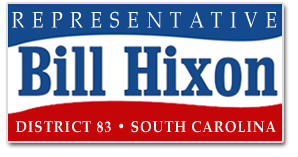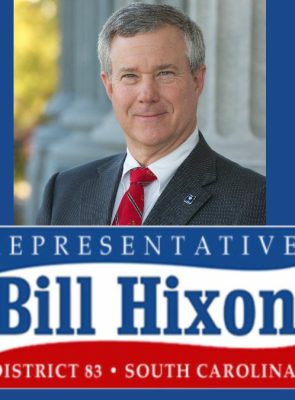|
Legislative Update – February 6, 2017 |
The House of Representatives amended, approved, and sent the Senate H.3488, a bill that makes provisions for electronic insurance documents, including authorization for insurers to deliver, store, or present evidence of insurance coverage by electronic means and provisions that afford consumers the option of receiving and signing notices and documents electronically.
The House amended, approved, and sent the Senate H.3441, a bill authorizing electronic payment of workers' compensation as an alternative to traditional payment by means of a check. The legislation affords the option of receiving workers' compensation payments by such electronic means as an electronic funds transfer, a direct deposit, or debit card.
The House approved and sent the Senate H.3406, a bill relating to workers' compensation commission funding. By eliminating a five-year sunset provision included in Act 95 of 2013, the legislation provides ongoing authority for the Workers' Compensation Commission to retain a portion of the annual revenue of the maintenance tax imposed on self-insurers as well as half of the interest charged on delinquent maintenance taxes in order to pay the salaries and expenses of the commission. The Workers' Compensation Commission must continue to provide a report on each July to the Chairman of House Ways and Means Committee, the Chairman of Senate Finance, and the Governor of the amount of money the agency has received in the previous fiscal year under these provisions.
The House approved and sent the Senate H.3237, a bill simplifying the approval process for highway routine maintenance and emergency repairs in keeping with the Department of Transportation restructuring approved through Act Number 275 of 2016 which made the Secretary of Transportation directly accountable to the Department of Transportation Commission. The legislation eliminates requirements for the Secretary of Transportation to evaluate and approve routing operation and maintenance requests or emergency repairs for highway facilities that are not included in the Statewide Transportation Improvement Program, and for the DOT Commission to review the Secretary's report of routine maintenance and emergency repair requests.
highway routine maintenance and emergency repairs in keeping with the Department of Transportation restructuring approved through Act Number 275 of 2016 which made the Secretary of Transportation directly accountable to the Department of Transportation Commission. The legislation eliminates requirements for the Secretary of Transportation to evaluate and approve routing operation and maintenance requests or emergency repairs for highway facilities that are not included in the Statewide Transportation Improvement Program, and for the DOT Commission to review the Secretary's report of routine maintenance and emergency repair requests.
Members also adopted several changes to the rules governing the South Carolina House of Representatives.
House Resolution H.3494 was adopted to approve a house rules change regarding the cross-over deadline for considering legislation from the Senate without a super-majority vote. Under the revised rule, no bill or resolution from the Senate that is received by the House after April 10 during a regular annual session of the General Assembly may be considered unless two-thirds of those members present and voting agree to waive the rule and allow for consideration of the legislation. Any bill or joint resolution failing to receive the required vote must be returned to the appropriate committee. The April 10 deadline replaces a May 1 deadline set for the second year of a two-year General Assembly. The earlier deadline accommodates the shortened legislative session approved in Act Number 199 of 2016 and is consistent with the deadline for House-passed legislation that has been adopted by the Senate.
House Resolution H.3497 was adopted to approve a house rules change revising and expanding the duties of the ethics committee in keeping with the enhancements to the state's Ethics, Government Accountability, and Campaign Reform Act approved last year to provide for more independent means of investigating alleged misconduct of public officials (Act Number 282 of 2016) and more expansive statements of economic interests for public officials and others who are required to make Ethics Act filings (Act Number 283 of 2016).
 House Resolution H.3499 was adopted to approve a house rules change revising limitations on amendments proposed for state government budget legislation. Under the revised rule, an amendment to the General Appropriations Bill or a Supplemental Appropriations Bill which has the effect of appropriating funds in excess of one million dollars must include within the amendment the corresponding appropriation reduction(s) and/or revenue increase(s) that would allow the budget to remain balanced. This rules change lowers the threshold, which was previously set at five million dollars. The rules change also provides that if an amendment identifies unspent projected revenue or balance as the funding source, the Speaker must consult with the Office of Revenue and Fiscal Affairs and confirm the existence of sufficient unspent revenue or balance before the House may consider the amendment.
House Resolution H.3499 was adopted to approve a house rules change revising limitations on amendments proposed for state government budget legislation. Under the revised rule, an amendment to the General Appropriations Bill or a Supplemental Appropriations Bill which has the effect of appropriating funds in excess of one million dollars must include within the amendment the corresponding appropriation reduction(s) and/or revenue increase(s) that would allow the budget to remain balanced. This rules change lowers the threshold, which was previously set at five million dollars. The rules change also provides that if an amendment identifies unspent projected revenue or balance as the funding source, the Speaker must consult with the Office of Revenue and Fiscal Affairs and confirm the existence of sufficient unspent revenue or balance before the House may consider the amendment.
House Resolution H.3501 was adopted to approve a house rules change revising notification requirements for conference and free conference committee reports on government budget legislation. The rules change eliminates the requirement that a report of a Committee on Conference or Free Conference concerning the General Appropriations Bills, Supplemental Appropriations Bills for the ordinary expenses of State Government, or legislation appropriating the Capital Reserve Fund must be printed in the House Journal before it may be considered by the House. Even though this printing requirement is eliminated, the House Rules continue to require that these reports must be made available online to the public for at least twenty four hours before they may be considered by the House.
As always, thank you for the privilege of serving you in Columbia. If I can ever be of assistance to you, or if you have ideas on issues you want me to share with the rest of the General Assembly, please do not hesitate to contact me.



